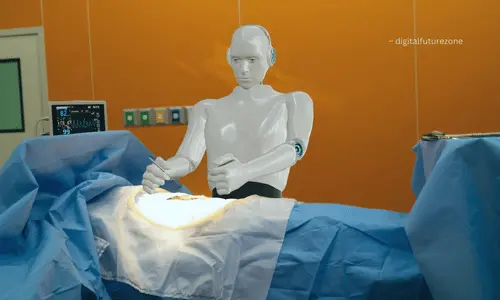BrainBridge of Dubai announced a major announcement on May 21st, revealing they have developed and implemented the first head transplant system that includes AI surgeons. This will provide an opportunity to those suffering from stages 4 cancer, paralysis or neurodegenerative diseases with a second chance of survival via the procedure of head transplants.

The Vision Behind BrainBridge’s Innovation
BrainBridge’s Vision BrainBridge is an ingenuous solution combining Artificial Intelligence (AI) alongside modern surgical techniques to carry out head transplants. The AI surgeons can carry out complicated yet precise surgical procedures that are necessary to perform these surgeries; their goal is to increase quality of life of patients with serious health conditions with limited treatments.
1. The procedure of head transplantation could benefit Stage 4 Cancer Patients If you are a cancer patient in terminal stage with cancerous tumors that are significantly expanded and spread to the head, a head transplant may theoretically deliver them with new body parts that are free of cancerous tumors, possibly increasing life expectancy and increasing the quality of life.
2. The paralysis sufferers who have severe paralysis caused by injury to the spinal cord could be able to recover mobility and independence using synthetic means of reconnecting in a fully functioning body with artificial methods.
3. The Neurodegenerative Condition: Those suffering from neurodegenerative diseases like Amyotrophic Lateral Sclerosis or Parkinson’s may have hope in head transplant surgery. This kind of surgery would enable their bodies to stay healthy and not get worse over time.
The Role of AI Surgeons
BrainBridge uses Artificial Intelligence Surgeons in their ambitious program. They AI devices were developed to deal with the many intricate aspects of surgery, ranging from incisions to reconnections nerves. They are also learning with time to improve the success rate of complicated procedures such as this. Making use of Artificial Intelligence (AI), BrainBridge is attempting to reduce human errors while increasing accuracy and efficacy throughout their operations.
Researchers remain skeptical about BrainBridge’s use. While BrainBridge was initially received by enthusiastically upon its announcement but some neurologists were hesitant in light of challenges associated to head transplants:
1. Reconnecting successfully spinal nerves with success is usually seen as one of the most difficult obstacles to regaining both sensory and motor capabilities.
2. Immune System Responses Reactions to the immune system can interfere with transplants and should be taken into consideration when transferring organs or tissues of one body into another.
3. Ethics: Head transplants raise ethical issues which include identity concerns such as consent, considerations for consent and the notion of life and death.
BrainBridge has been in the news this week when they announced the first AI surgical head transplant system that has the potential to transform head transplant procedures using AI surgeons. The groundbreaking technology is a fascinating glimpse into what is to come in the near future as AI becoming more important in complicated procedures. However, extensive study, research and development as well as the consideration of ethics must occur prior to this vision is able to become a reality.
